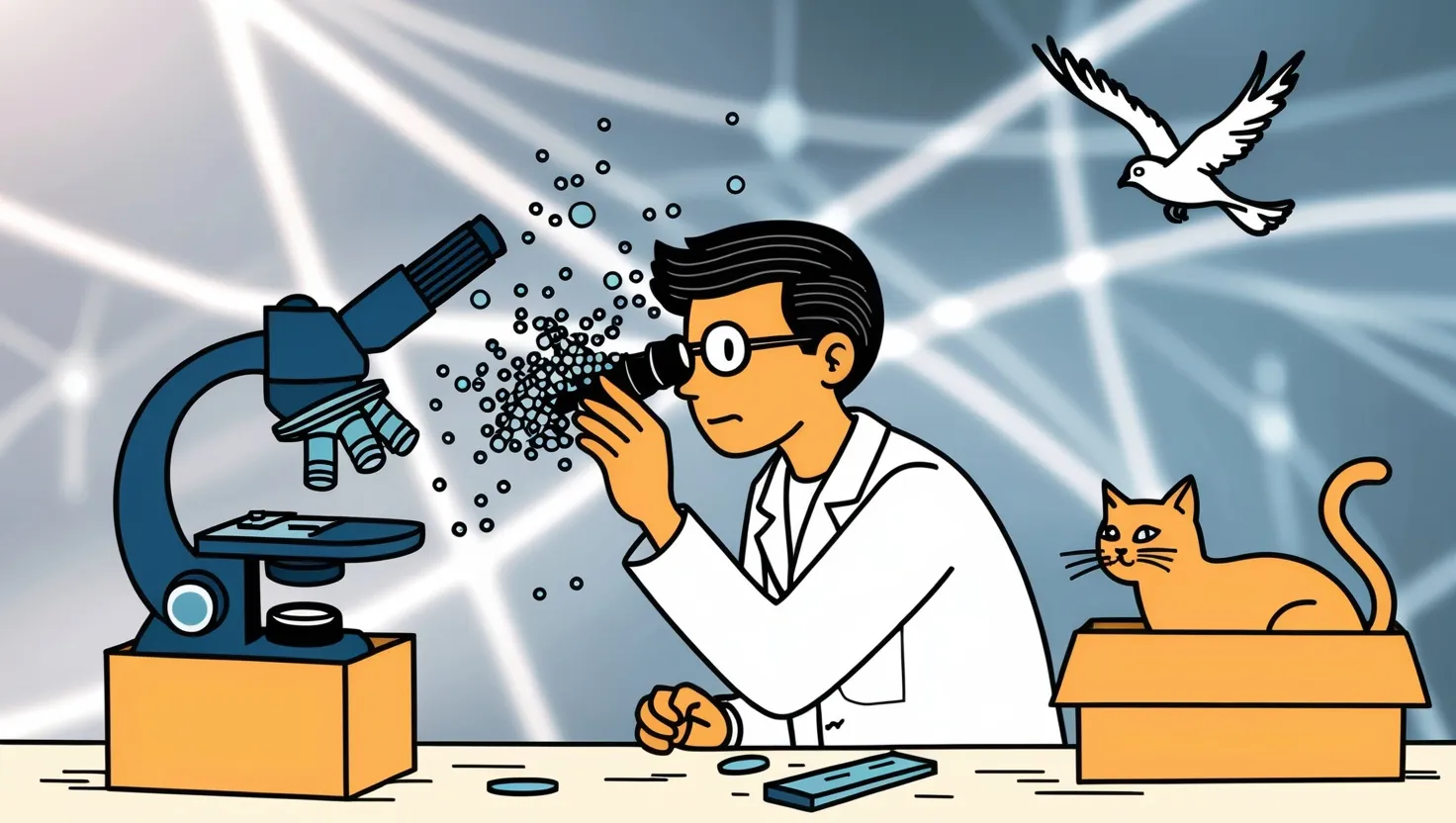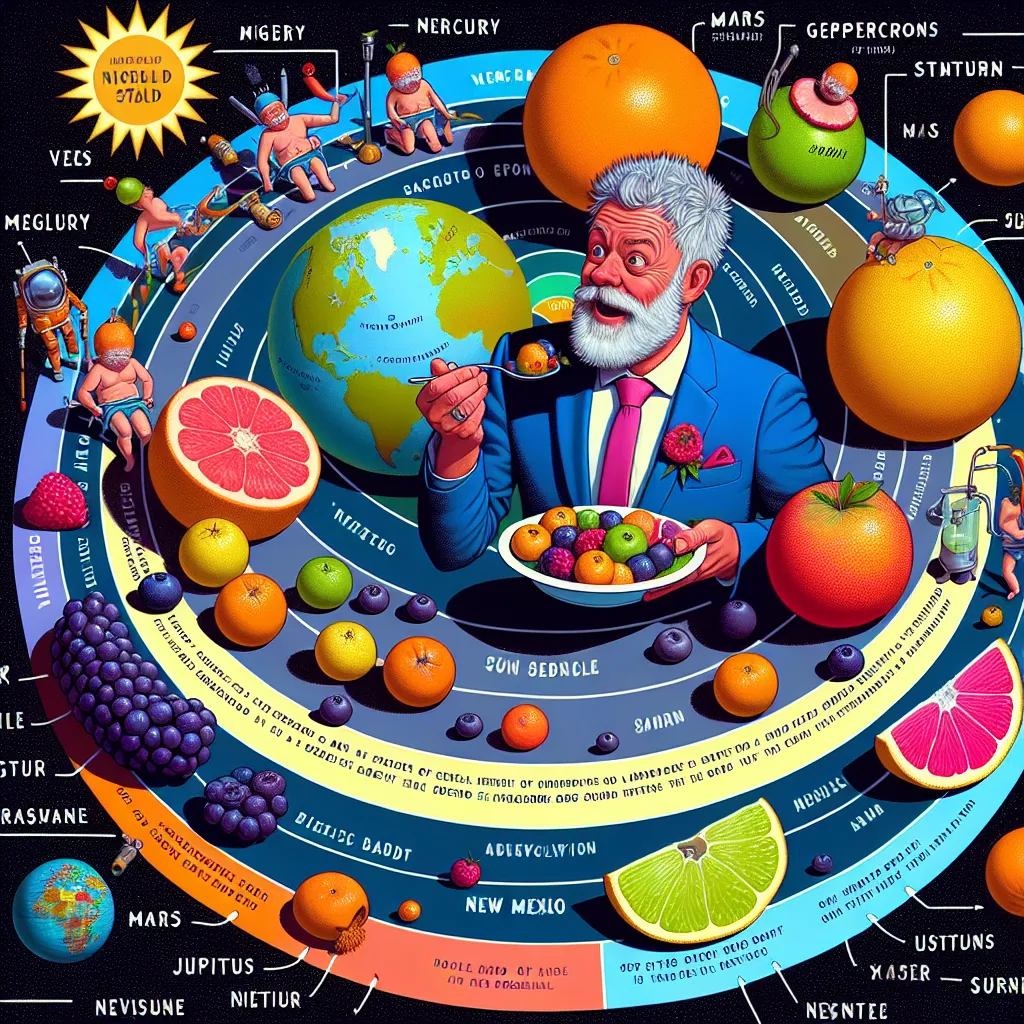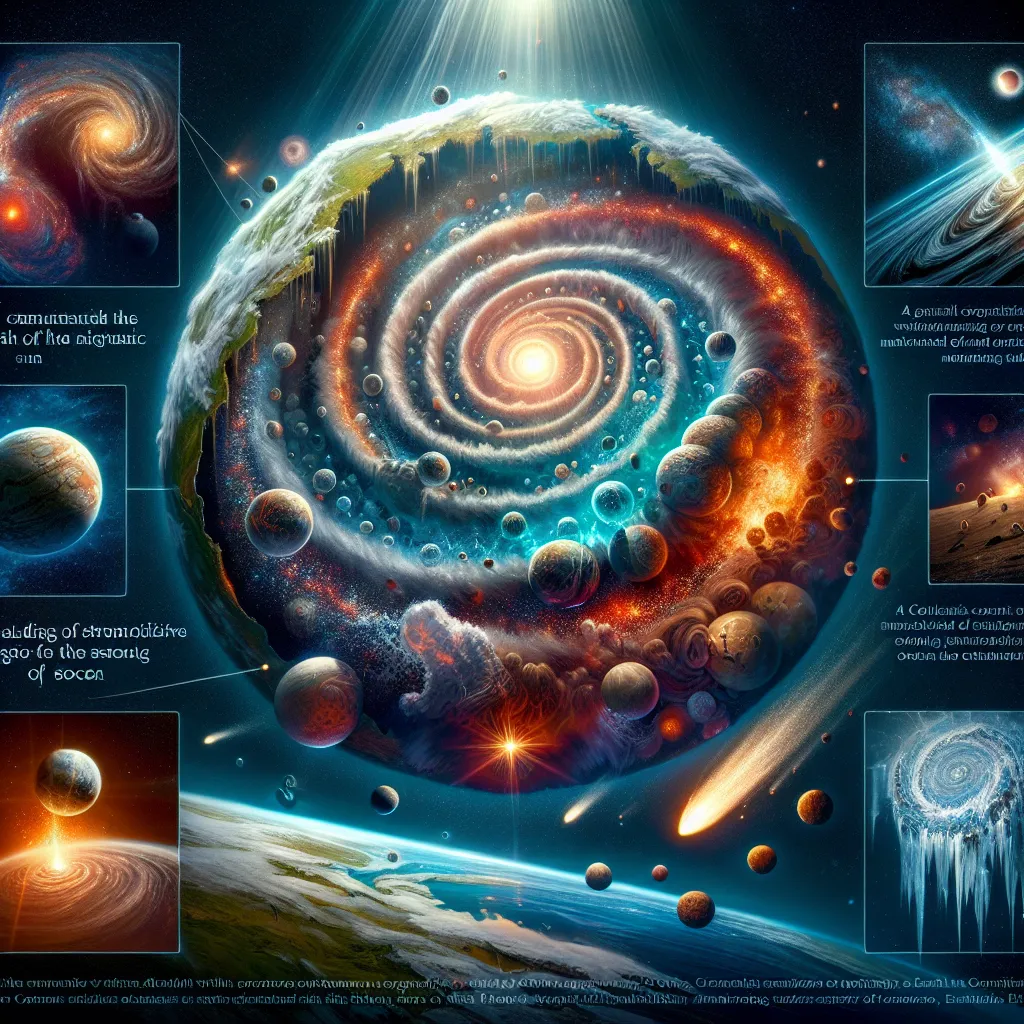As we delve into the fascinating realm of quantum mechanics, we encounter a phenomenon that challenges our conventional understanding of reality and consciousness: the Quantum Zeno Effect. This effect, named after the ancient Greek philosopher Zeno of Elea, suggests that the act of observation can dramatically influence the behavior of quantum systems, essentially “freezing” them in time.
Imagine playing a game of “Red Light, Green Light” with particles at the quantum level. Every time you observe these particles, you’re essentially yelling “Red Light!” at them, forcing them to halt their progress. This is what happens in the quantum world when you measure a system frequently enough. The particles, or more accurately, the quantum system, are prevented from changing their state due to the repeated measurements.
To understand this better, let’s dive into some key concepts of quantum mechanics. Quantum particles can exist in multiple states simultaneously, a phenomenon known as superposition, until they are observed. When you measure a quantum system, its wave function collapses, and it “chooses” a single state. This process is fundamental to the Quantum Zeno Effect.
When you measure a quantum system rapidly and repeatedly, you keep forcing it back to its initial state. It’s as if you’re constantly resetting a timer before it has a chance to tick forward. This repeated measurement prevents the system from evolving naturally, effectively freezing it in its current state.
But what if this effect isn’t limited to the microscopic world? What if our consciousness is playing a similar role on a grand scale? Some theorists propose that human consciousness might be constantly collapsing quantum possibilities, shaping our reality moment by moment. This idea is both intriguing and unsettling, as it suggests that our thoughts and observations could be sculpting the world around us.
Let’s consider an example to make this more tangible. Imagine Schrödinger’s cat, the famous thought experiment where a cat is in a box with a radioactive atom that has a 50% chance of decaying. If the atom decays, the cat dies. According to quantum mechanics, until the box is opened and the cat is observed, it exists in a superposition of states – both dead and alive. Now, if we apply the Quantum Zeno Effect, by frequently measuring the state of the radioactive atom, we can ensure that the cat always lives. Every time we measure the system and find that the atom hasn’t decayed, it’s as if nothing has happened, and the process starts again.
This concept extends beyond simple thought experiments. In the realm of quantum computing, the Quantum Zeno Effect has practical applications. It could help stabilize fragile quantum states, improving the coherence times of qubits and reducing errors in quantum calculations. This is crucial because quantum computers rely on maintaining these delicate states to perform complex computations.
But the implications go even further. Some researchers suggest that the Quantum Zeno Effect might play a role in biological processes, such as how birds navigate using Earth’s magnetic field. This idea introduces a fascinating intersection between quantum mechanics and biology, where the act of observation or measurement could influence biological behaviors.
Now, let’s venture into the more philosophical and psychological aspects of this phenomenon. Henry Stapp, a physicist, has theorized that the Quantum Zeno Effect could be the mechanism behind how our attention influences brain activity. According to Stapp, when we focus our attention on a particular thought or idea, we are essentially collapsing the wave function of our brain states towards that physical outcome. This repeated collapse, similar to the Quantum Zeno Effect, can lock our brain into a specific state, making it harder for other thoughts or states to emerge.
This theory has interesting implications for practices like meditation and the placebo effect. If our minds are constantly collapsing quantum possibilities, then focusing our attention through meditation could be a way of shaping our reality. The placebo effect, where the belief in a treatment’s efficacy can actually improve health outcomes, might also be explained by this mechanism. Our thoughts and beliefs could be literally sculpting our physical reality.
However, there’s another side to this coin – the Anti-Zeno Effect. Under certain conditions, frequent measurements can actually accelerate the evolution of a quantum system instead of inhibiting it. This duality highlights the complex and often counterintuitive nature of quantum mechanics.
The connection between consciousness and the Quantum Zeno Effect also raises profound questions about the nature of reality. If our observations can freeze quantum states, what role does consciousness play in shaping our reality? This question delves into the heart of philosophical debates about free will and the observer effect.
In a more speculative realm, some theories suggest that brain states could be frozen if monitored at sufficiently small space-time intervals, a neuro-biological version of the Quantum Zeno Effect. This idea, though still highly speculative, opens up intriguing possibilities about the interface between consciousness and the physical brain.
As we explore these ideas, it becomes clear that the Quantum Zeno Effect is more than just a quirky phenomenon; it’s a window into the fundamental nature of reality. By understanding and harnessing this effect, we’re not just freezing particles in time – we’re potentially influencing the fabric of our universe.
So, are we all unwitting reality architects? The answer is complex and multifaceted. While the Quantum Zeno Effect provides a compelling framework for understanding how observation shapes reality, it also challenges us to rethink our place within the universe. Our thoughts and observations might indeed be sculpting the world around us, but this power comes with a profound responsibility to understand and wield it wisely.
As we continue to explore the frontiers of quantum mechanics, we edge closer to unraveling the deepest mysteries of existence. The Quantum Zeno Effect serves as a powerful reminder of the observer’s role in shaping reality, inviting us to question everything we thought we knew about the nature of existence. In this quantum adventure, we find ourselves at the crossroads of physics, philosophy, and consciousness, where the boundaries between observer and observed begin to blur.
In the end, the Quantum Zeno Effect is not just a scientific curiosity; it’s an invitation to explore the intricate dance between our consciousness and the quantum world. Whether we are literally freezing reality with our observations or simply influencing the probabilities of quantum outcomes, one thing is clear: our minds are capable of more than we ever imagined. So, the next time you find yourself lost in thought, remember that you might be shaping the world around you in ways both subtle and profound.






